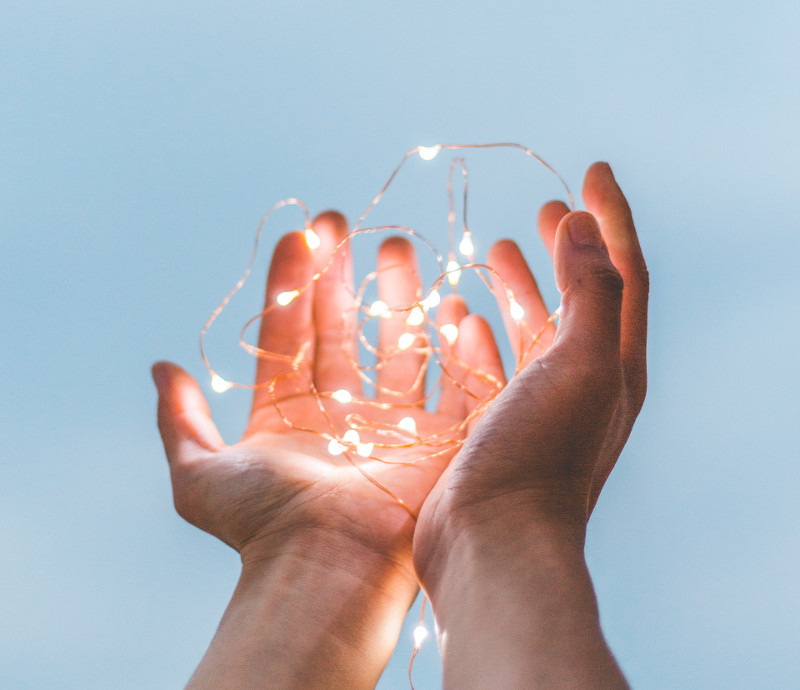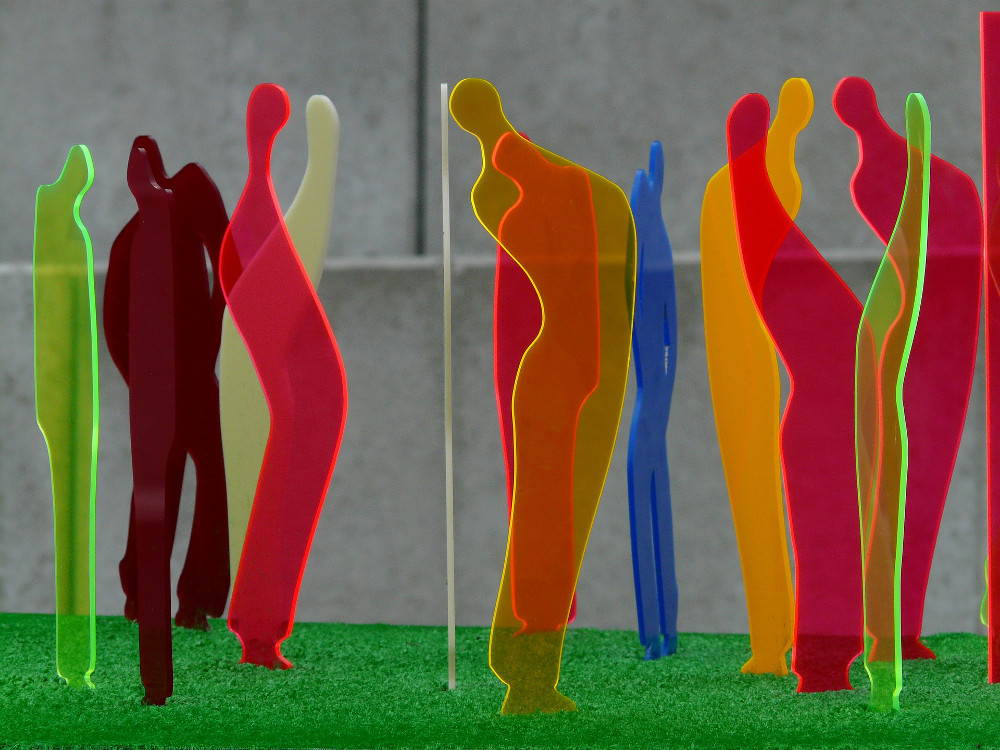The training interventions and research conducted by Nodo Group with organizations and the social services/community sectors are the Italian version of instruments developed within the Tavistock model.
Group Relations Conference
Since the late 1990s, Nodo Group has been organizing experiential conferences in Italy, at which participants are invited to reflect in the “here and now” on the conscious and unconscious roles and processes underlying leadership, authority, and organizations.
In the context of the historic Italian equivalent – the ALI Conference – variations with respect to the English model implemented in the Leicester Conference include: increased exploration of the boundary between delegates and staff; and the introduction of new social dreaming activities.
Two original conferences have also been developed. LFA offers mental health practitioners the opportunity to experientially immerse themselves in the role of participants-residents, with the goal of learning from the non-verbal actions and communications that characterize daily life in therapeutic residential centres.
ECW is the youngest of the Italian Group Relations-style Conferences. It is focused on bodily and creative languages that can inform a more ecological approach to exploring organizational dynamics. This conference explores the concepts of interdependence and relatedness, which are core elements of the systemic organizational paradigm, including through outdoor activities in natural settings.

Balint Centre
The Balint Study Centre was founded in Turin in 2012 to study the care role and support practitioners in caring/helping professions (in the health care, social services, and education sectors) with two specific aims:
- Building up a body of knowledge – by assembling reference materials, studies, research, data, and personal accounts – about the emotional demands of the “helping professions”, both medical and non-medical, including through the opening of a specific “observatory” on the website of the Order of Physicians of Turin;
- Supporting care practitioners by developing and implementing prevention and protection methods (especially the Balint approach) against phenomena of organizational malaise, burnout, and work-related stress, and especially caring for practitioners by shining a light on the impact of the non-individual factors – role and network relationships, group processes, and institutional/social dynamics – involved in care/helping.
Today, the centre comprises its founder Mario Perini and a small group of (family and hospital) doctors and psychologists who embrace an explicitly inter-professional approach; it is coordinated by Marco Araldi (a general medical doctor and trainer, who hosts the group at his practice) and Alessandro Siciliano (a clinical psychologist, psychotherapist, and supervisor of healthcare staff).
The shared emphases in inter-professional collaboration include: attending to the care relationship (care in the broader sense, not just therapy) that binds practitioners to their clients, patients, and users; a systemic focus on the group and network relations that connect practitioners with other actors and agencies, with public institutions, with the community, with families and associations, with regulation, laws and planning strategies – in practice with all stakeholders, especially the financial and political ones. Surviving this complex environment – without getting hurt, without burning out and becoming cynical and demotivated, while preserving one’s capacity to think, integrity, competence, empathy and the possibility to take pleasure in one’s work – is an ambitious objective that is nevertheless realistically achievable.
Over its years of operation, following an initial phase of establishing and sharing ideas and languages, the Centre has conducted a series of activities:

- Organization and management of interprofessional Balint groups, with the participation of doctors, psychologists, educators, and teachers.
- Public events presenting the Balint method (at the Order of Physicians, the Mauriziano Hospital in Turin, the FIMMG).
- Participation in events organized by other actors [CSeRMeG seminars (Centre for Studies and Research in General Medicine); Balint Days in Parma; a National Conference].
In 2019, the seminar in Verona on fatigue in care was well-attended (see poster). At present, the Study Centre, in addition to organizing the meetings of the Balint Centre special interest group (link to the Balint Centre special interest group page) togliere per ora metteremo il link quando sarà pronto, is working on two projects: a) an annual, fee-based interprofessional Balint Group for caring for members of the caring/helping professions and supporting the caring dimension of their role, now on its 9th edition; b) CISPOS, an applied group project related to the current public health emergency.
A free psychological help line has been set up for health workers engaged in frontline care, prevention, and assistance related to the COVID-19 pandemic, as well as for emergency and public safety workers.
Ongoing: Enrollment re-opens every six months for a new round of Balint meetings facilitated by Mario Perini and Alessandro Siciliano.
For the past several years, the Nodo Group has been actively offering programmes based on Social Dreaming, a methodology for transforming dream thinking through the use of free association, thematic amplification, and systemic thinking, with a view to forming bonds, identifying connections, and releasing/generating new ideas. (For in-depth theoretical background on social dreaming, see Social Dreaming on this website)
Specifically, the Nodo Group Impresa Sociale hosts two social dreaming initiatives: a) a permanent, monthly social thinking laboratory coordinated by Franca Fubini; b) a one-year international training course with participants and staff from different countries, run in collaboration with the
Social Dreaming international Network (SDiN) and the Tavistock Institute of Human Relations (TIHR). (see posters)
The 2019-2020 training course ended recently. Due to the COVID-19 public health emergency, it moved online in April 2020; the new format has proved effective and is positively rated by participants.

The dates of future editions will be announced on this website, as well as on the SDiN and TIHR websites.
Ongoing
Franca Fubini, Claudio Cassardo, Alice Mulasso, and Alfredo Veneziale invite you to participate in a cycle of social dreaming matrices.
Training
The course consists of three modules of three consecutive days plus one of four consecutive days, spread out over a one-year period.
Systemic-Psychodynamic Coaching Centre

Founded in 2021, the Coaching Centre represents a key development in a process of inquiry initiated in 2013 by Nodo members with a specific interest in systemic-psychodynamic coaching and its use in executive coaching and other organizational interventions.
The Centre offers coaching packages to individuals who:
- hold a role of responsibility within organizations
- wish to gain insight into, and better fulfil, their professional role
- are working on new career plans
- wish to be more effective in meeting the challenges of their work environment
- wish to discover and develop their leadership qualities
The Centre implements projects with companies – public or private, and operating in the industrial, services, or social services and healthcare sectors – in the context of wider processes of reorganization, restructuring, and upskilling.
Coaching is a form of intervention offered to individuals, with the aim of enhancing their professional fulfilment, and stimulating them to identify tools for growth and change. It is a process that fosters the development of emotional and relational skills, a key prerequisite for acquiring fuller awareness of one’s role within an organization.
Systemic-psychodynamic coaching gives beneficiaries the opportunity to explore themselves and their career paths; it enables them to transform their experience into competence, forming a bridge between their knowledge and their ability to recognize and use suitable tools, and to find new keys to understanding, new perspectives upon, and new connections with the system and organization they belong to.
It represents an opportunity for the coachee to take time to think, and to explore that capacity for introspection that will allow them to develop a better understanding of themselves, their relationships, and their ability to interact within work groups.
The outcomes of the coaching process include enhanced ability to manage stress and organizational complexity, and to contain the anxiety generated by continuous change.
Coaching offers beneficiaries a means of sharpening their perceptions of their work and social environments, and to find within themselves the answers that will allow to transform problematic situations into virtuous actions by means of adopting a creative attitude.
Thus, the coaching trajectory, in addition to helping the coachee to manage work processes, manage conflict, and overcome apparently invisible obstacles, also enables them to find “a way” of optimizing the balance between their expectations of self-realization and reality.
From a theoretical and methodological point of view, the Nodo Group’s Coaching Centre is informed by the systemic-psychodynamic approach, which combines psychoanalytic concepts – which shed light on the role of the unconscious in the actions of an individual, and may be extended to the analysis of work group dynamics following W. Bion – with systems theories initially introduced by Eric Miller and A.K. Rice in the 1960s as a means of reading the organization within its broader context and understanding the interactions that take place within it.
To learn more about the Centre’s coaches and request information about a coaching intervention, see the Ongoing section of the website.
Coaching Center
Listening Post
The Listening Post is a recurrent annual encounter of 8-15 people, during which participants reflect together on the society they belong to, thus offering a “snapshot” of that society at a particular moment in time. LP is based on the concept that people can, with some encouragement, take on an active role as community members who engage in reflection and self-observation. The group dynamics can be such that even a small group can act as though it were a microcosm of the larger group that is society. The themes that emerge, via associative dialogue, may legitimately be analysed in terms of their social content, which transcends individual and personal aspects.
The aim is to enable participants to acquire a deeper understanding of the relationships they are involved in as members of society and as individuals, together with the broader system of social relations of which they are part. Sharing their thoughts and concerns with others who occupy different societal roles to their own, enables LP participants to first explore the conscious and unconscious dynamics dominating the group’s associative dialogue and subsequently to attempt to analyse the contents of this dialogue.
The methodology
The methodology draws on: psychoanalytical theories, theories about the functioning of open systems, and the group relations conferences tradition. The group discussion follows a set format, but there is no predefined agenda or a priori identification of problematic issues. The themes that emerge are shaped by the work of the participants who take on the role of community members. The group is collectively invited to: seek to identify the main conscious and unconscious dynamics at work within it; attempt to develop an understanding of what is going on in society in the “here and now”, as well as in the group itself viewed as “a whole”. The underlying hypothesis is that, in any group of people who meets for a specific purpose (i.e. a system), the mechanisms of social functioning (power relations, inclusion and exclusion, leadership, etc.) tend to manifest themselves via processes of unconscious thought similar to those observed in broader society (principle of isomorphism).
The Global Report
Since 2000, LPs have been convened on a quarterly basis in London, at regular but less frequent intervals at regional venues throughout the UK, and once a year at other venues around the world. Currently, Listening Posts are held in 37 countries.
Around an agreed date in January each year, under the guidance and coordination of the English association OPUS, local LPs are convened with a view to obtaining a snapshot of social dynamics internationally. The individual national reports are prepared by the “convenors” (local facilitators), who describe the observations that have emerged from the work of the local group they coordinate, obtain the approval of the group, and send the local report to the international organizers in London.
Following each round of LPs, an ad hoc study group revisits the national reports submitted to OPUS and draws them together into a Global Report in English, which is published annually in OPUS’ scientific journal, Organizational and Social Dynamics.

Special Interest Groups
Within the Nodo Group, a number of ad hoc special interest groups have been set up by members and supporters of the Social Enterprise with a view to exploring specific themes of interest or engaging in “intervision”-style activities.
The thematic groups approach their topics of interest from a systemic-psychodynamic perspective; the intervision groups jointly examine organizational case studies via a range of methodologies, and tend to be locally based so as to facilitate in-person meetings.
The spokespersons of the various study groups hold periodic meetings, which are facilitated by a Study Groups Representative, with a view to discussing ideas for the ongoing work of the groups and collating requests and proposals that the groups wish to submit to the Board of Directors.
These intergroup meetings serve to observe the functioning of the groups but also of the Social Enterprise as a whole, thus reinforcing the special interest groups’ sense of belonging to the wider Nodo Group.


Social Dreaming